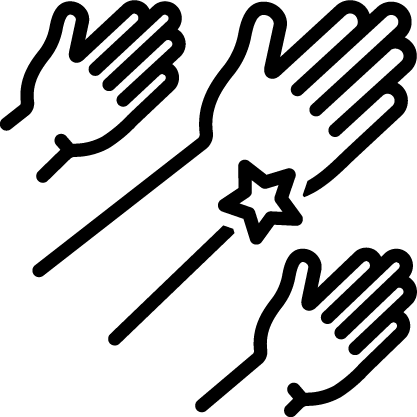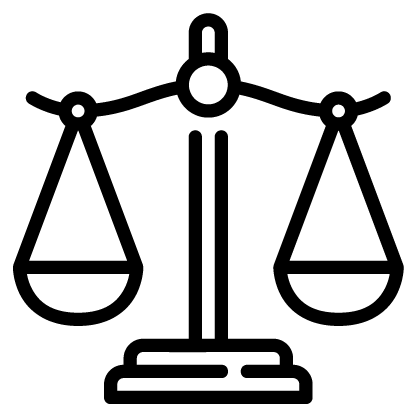Fees and FEE-HELP
Fees
Domestic students
Postgrad coursework fees
Some courses offer a limited number of Commonwealth Supported Places (CSPs). The course fees for CSPs are partly subsidised by the Australian Government and partly covered by you in the form of a student contribution. CSPs are highly competitive and based on merit. You don’t need to apply for a CSP. You will be automatically assessed and notified in your letter of offer whether you have been offered a CSP or a full-fee-paying place.
To find out whether your course offers Commonwealth Supported Places, check the University’s course search.
Research fees
Domestic students undertaking a Higher Degree by Research (HDR) at the Uni are usually funded by the Australian Government through a Research Training Program (RTP) Fees Offset Scholarship. RTP scholarships are awarded in November, February and June. Unsuccessful applications are encouraged to re-apply if your academic situation changes throughout your candidature. For example, you publish an article or advance your professional experience.
International students
International student tuition fees vary between courses and the year in which you study. Read annual updated fee information by area of study.
You will need to pay your fees before the start of each semester. It is important that you pay by the due date to avoid enrolment sanctions.
If you are unable to pay tuition fees for the semester
If you do not pay your semester fees the University will send you a notification to remind you about payment and a deadline for payment. If you have no capacity to pay you will need to suspend your studies or if you have not commenced your degree, you will need to defer your offer. If you don’t pay and stay enrolled, sanctions will be applied. During this period, you can still pay your late fees, but you must complete all payments before the final sanction is applied. The final sanction is being un-enrolled. Once all your fees are paid, the sanctions will be removed.
Contact us for further assistance.
Overseas student health cover (OSHC)
Health insurance is compulsory for international students in Australia. Health insurance provides access to the University Health Service and public hospitals.
International students can purchase health cover through the Uni or Allianz Global Assistance (Peoplecare Health), ahm OSHC, BUPA Australia, CBHS International Health, Medibank Private and NIB OSCH.
The Australian Government Department of Health have further information and OSHC resources.
Student Services and Amenities Fee (SSAF)
The Student Services and Amenities Fee (SSAF) is charged each semester to fund non-academic services at Australian universities. SSAF rates are set by the Australian Government on an annual basis.
If you’re a domestic student, you may be eligible to defer all or part of your SSAF through SA-HELP.
Find out more about SSAF and about how SUPRA is funded.
Additional course costs
Most courses and units of study have required or recommended course materials, such as books, readers and equipment.
Some courses may have additional course costs, which can be substantial.
Higher Education Contribution Scheme and Higher Education Loan Program (HECS-HELP)
Higher Education Contribution Scheme and Higher Education Loan Program (HECS-HELP)
What is HECS-HELP?
Students with Commonwealth Supported Places (CSPs) are eligible for a HECS-HELP loan. HECS stands for Higher Education Contribution Scheme; HELP stands for Higher Education Loan Program. Domestic students who have a CSP and fulfill other basic eligibility criteria can take out a HECS-HELP loan to pay for all or part of their tuition fees. HECS-HELP loans cannot be used for additional study costs such as accommodation or textbooks. Students on permanent humanitarian visas are eligible for HECS-HELP.
What is FEE-HELP?
FEE-HELP is a federal government loan scheme that assists eligible full-fee-paying students to pay all or part of their tuition fees. It cannot be used for additional study costs such as accommodation or textbooks.
Find more information, how to apply, and eligibility for FEE-HELP.
How much can I borrow?
You can borrow up to the combined HELP limit to pay your tuition fees. This includes all FEE-HELP, VET FEE-HELP and VET Student Loans and any HECS-HELP loans incurred from 1 January each year.
Once you begin using your HELP loan, the amount of HELP you have left to borrow is known as your available HELP balance. Check your HELP balance here.
You will repay your HELP debt through the Australian Taxation Office once you meet a certain salary threshold.
Studying overseas and OS-HELP
OS-HELP is a government loan for CSP students who travel overseas for study purposes e.g. for exchange, fieldwork, etc. The loan contributes to your accumulated HELP debt. Find out more about OS-HELP, applications and eligibility.
How do I know how much my accumulated HELP debt is at Usyd?
After the census date each semester (31 March and 31 August) you will be emailed your Commonwealth Assistance Notice (CAN), an official statement outlining your unit of study enrolment for that session, your student contribution, and any HELP debt or loan fee you may have incurred.
You can access this information any time via Sydney Student (go to ‘My finances’, ‘Your finances’, then ‘CAN statements’). The CAN statement also includes your Commonwealth Higher Education Student Support Number (CHESSN), which you will need to check your Usyd HELP balance.
How do I know how much my accumulated HELP debt is across universities?
To check your accumulated HELP debt across universities and to check the repayments you have made, log in to your MyGov account.
Do I need a Tax File Number (TFN)?
You must provide your TFN to be eligible for HELP. The Australian Taxation Office (ATO) can assist you with information on how to obtain a TFN.
When do I need to start making compulsory HELP debt payments?
You have to start repaying your HELP debt through the taxation system once your income is above the compulsory repayment threshold, even if you are still studying. The compulsory repayment threshold is adjusted each year.
Do I still have a debt if I withdraw from units?
Not if you withdraw before the census date. If you withdraw after the census date, you may be able to obtain a remission of your HELP debt if you can prove special circumstances, such as illness, injury or misadventure, which made it difficult for you to continue studying. For more information, please read our ‘Fee refunds’ article.
Download this article as a Word document
Download this article as a PDF
Written by SUPRA Postgraduate Advocacy Service March 2023.
Need help?
Our casework and legal services are here for you.

Postgraduate Advocacy Service
Our caseworkers can help with any problems you face while you study at Usyd, from academic appeals to renting.


Stay in touch with us